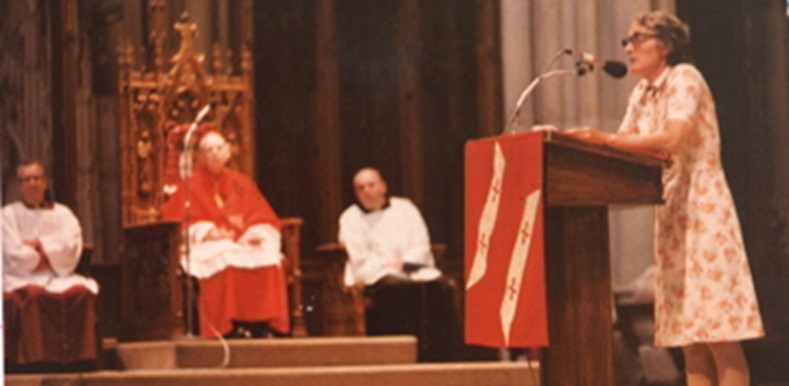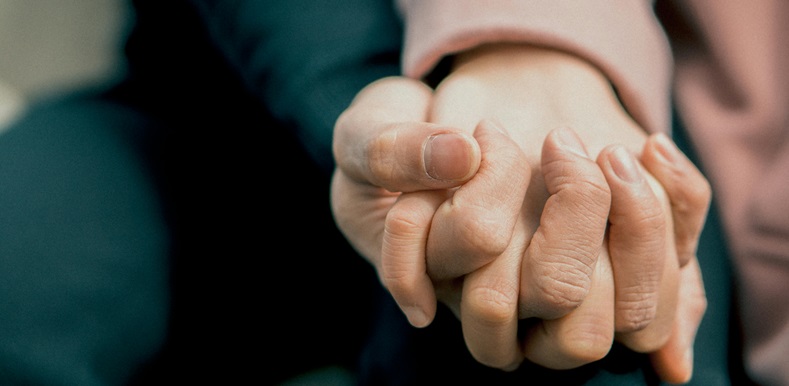Keeping you informed on News and Views within the funeral planning industry
Are the 7 Stages of Grief a Myth?

The ‘7 stages of grief’ are often a framework that people turn to in order to understand their reactions when someone dies.
The idea first came from psychiatrist Elisabeth Kübler-Ross, who introduced a five-stage model in her 1969 book ‘On Death and Dying’. Originally, it was used to describe how people come to terms with their terminal diagnoses. Over time, the concept was expanded and applied more broadly to anyone dealing with loss, evolving into what we now commonly refer to as the ‘7 stages of grief’.
However, the reality is more complex. Grief is deeply personal, rarely linear and often unpredictable. Understanding this can help us support ourselves and our loved ones in more compassionate, practical ways. While grief cannot be eliminated, we can take thoughtful steps to ease its emotional and logistical burden.
Where Did the 7 Stages of Grief Come From?

The stages of grief framework theory originate from a groundbreaking book based on Elisabeth Kübler-Ross’s work with terminally ill patients. In it, she described five emotional stages that people often experience after receiving a life-limiting diagnosis: denial, anger, bargaining, depression and acceptance.
These stages were never meant to describe how people grieve the death of others. Instead, Kübler-Ross was exploring how people come to terms with their own mortality – an important distinction that often gets overlooked.
Over time, her model was adapted to apply more broadly to bereavement. As it gained popularity, two additional stages – shock and guilt – were added, creating the 7-stage model that many people are familiar with today. This version includes:
- Shock and denial
- Pain and guilt
- Anger and bargaining
- Depression
- The upward turn
- Reconstruction
- Acceptance and hope
While this expanded model offers a framework that some find helpful, it’s not a scientifically proven formula, and it doesn’t reflect the full range of emotional experiences that come with loss. Many grief experts now caution against treating these stages as a checklist.
The 7 Stages of Grief Explained
The expanded model of grief outlines seven emotional stages that a person may experience after a significant loss. While not everyone goes through all of these stages, and they rarely happen in a tidy, linear order, they can provide a general sense of the feelings that often arise:
1. Shock & Denial
An initial sense of numbness or disbelief. This stage can act as a protective barrier, helping the mind process overwhelming news in manageable doses.
2. Pain & Guilt
As the shock fades, deep emotional pain sets in. This can be accompanied by feelings of guilt for things said or unsaid or done or left undone.
3. Anger & Bargaining
Frustration or helplessness may turn into anger, sometimes directed at others, oneself or even the person who has died. Bargaining often includes ‘what if’ thoughts and attempts to regain control.
4. Depression
A deep sense of sadness, emptiness or fatigue. This stage may involve withdrawal from life and a feeling that the world has lost its meaning.
5. The Upward Turn
Slowly, routines may begin to resume. While pain may still be present, there may be more moments of calm or clarity.
6. Reconstruction
As energy returns, so does the ability to solve problems and begin rebuilding a new way of living around the loss.
7. Acceptance & Hope
This stage isn’t about forgiving or moving on; it’s about finding peace with the reality of loss and beginning to look ahead with cautious hope.
It’s important to remember that not everyone experiences these stages, and those who do may revisit some more than once, or skip others entirely. Grief is unique to every person, and there’s no ‘correct’ way to feel. If you find that you are struggling, you should speak to your GP or bereavement charities who offer free support and listening services.
Do the 7 Stages Really Reflect How We Grieve?

While the 7-stage model offers a comforting framework for some, modern grief research tells a more complex story. Grief doesn’t unfold in steps or follow a schedule.
“Grief doesn’t hit us in tidy phases and stages, nor is it something that we forget and move on from; it is an individual process that has a momentum of its own, and the work involves finding ways of coping with our fear and pain, and also adjusting to this new version of ourselves, our ‘new normal.’” said Julia Samuel, a psychotherapist and author of ‘Grief Works: Stories of Life, Death and Surviving’.
This perspective is supported by many in the mental health and bereavement care communities. Studies have shown that grief is highly individual and shaped by many factors, including personality, relationship to the deceased, cultural background, support systems, and whether the death was expected or sudden.
Rather than stages, many experts now refer to grief as a process – one that may include waves of emotion, periods of adjustment, and ongoing shifts in meaning over time. The Dual Process Model of Grief, for example, suggests that people switch between focusing on the loss and re-engaging with life, rather than moving through fixed emotional stages.
For some, the structure of the seven stages can be reassuring. But for others, it can lead to unnecessary guilt or confusion, especially if they’re ‘grieving wrong’ by not ticking every box in order.
Whichever way you find yourself grieving is okay. There’s no timeline. No script. Just your own way of navigating an incredibly human experience.
Why the 7 Stages Still Resonate with People
Despite its limitations, the 7-stage model of grief continues to be widely referenced because it offers something that many people crave during loss: structure.
When emotions feel overwhelming and unpredictable, a familiar framework can bring comfort. The seven stages provide a sense of order. For someone struggling to make sense of shock, anger, sadness or numbness, the model can normalise those feelings and offer reassurance that what they’re experiencing is part of the process.
However, when people don’t move through the stages in the ‘right’ order or feel stuck in one stage for longer than expected, it can create guilt, frustration or a sense of failure. The idea that grief has a proper sequence can unintentionally pressure people to ‘move on’ before they’re ready.
That’s why many grief experts now say the model can be helpful only if viewed as a loose guide, not a rulebook. Grief isn’t a series of boxes to tick; it’s a deeply personal experience that unfolds in its own time.
What Helps with Grief

While emotional understanding is essential, grief isn’t just something we feel; it also brings with it a host of real-life challenges. People coping with loss often face difficult decisions, overwhelming responsibilities and practical demands at a time when they’re least emotionally equipped to handle them.
That’s why the most helpful forms of support often include a combination of:
- Emotional reassurance from family, friends or professionals
- A supportive community to lean on
- Time and space to grieve without pressure
- And perhaps most critically, a reduction in external stress during bereavement
One of the lesser-known aspects of grief is something called anticipatory grief – the emotions that arise before a loss occurs. This often occurs when a loved one is seriously ill or nearing the end of life, but it can also emerge during the process of planning for the future.
Although painful, anticipatory grief can also be a window of opportunity. Some people use this time to talk openly, express love, prepare and take steps to reduce future burdens on their family. For many, these conversations, while difficult, offer a sense of agency and meaning. They can be a quiet act of care.
In moments of sorrow, practical support can be just as powerful as emotional comfort. And when certain plans are already in place, it allows space for what truly matters: grieving, remembering and healing.
How Prepaid Funeral Plans Can Ease the Burden
In the early days of grief, even the simplest decisions can feel overwhelming. Choosing a funeral director, selecting readings or music, and managing costs might seem like straightforward tasks, but can feel impossible under emotional strain. That’s why having plans in place ahead of time can make an enormous difference.
When funeral arrangements have already been made (and paid for), loved ones are spared the pressure of making difficult decisions during one of the most emotionally vulnerable times of their lives. They’re free to focus on what truly matters: supporting one another, honouring the person they’ve lost, and beginning the healing process.
A prepaid funeral plan can ease the burden in two important ways:
- Emotionally, by removing uncertainty and giving family members clear guidance on your wishes.
- Financially, by protecting against funeral costs and avoiding unexpected expenses.
There’s no way to eliminate grief. But thoughtful, practical planning can soften its impact and be a quiet act of love: a way to care for your family, even when you’re no longer here to do it yourself.
If you’re thinking about the future and how to protect your loved ones emotionally and financially, we’re here to help. Learn more about how prepaid funeral plans can support your family during life’s most difficult moments.












Share this content...